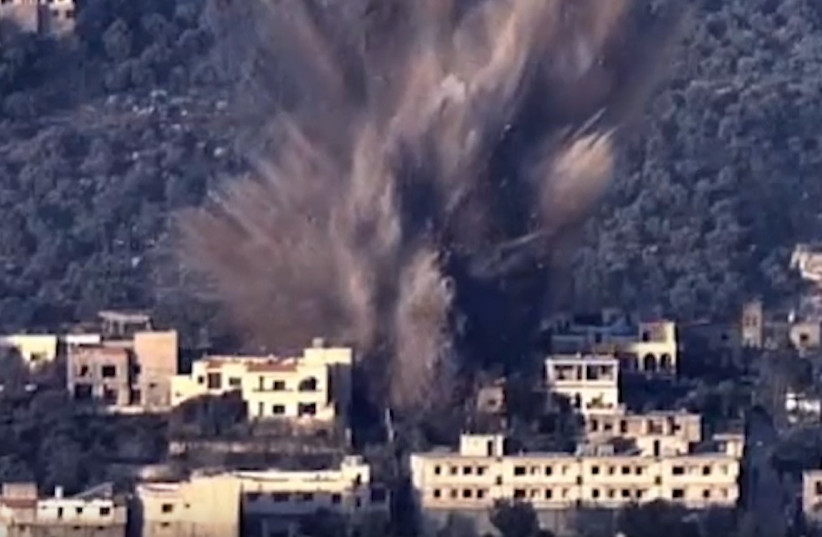As long as the fighting in Gaza continues, even if we have a ceasefire or escalate the fighting from the Israeli side, Hezbollah will not stop its war against us and its plot to wipe out Israel. If we escalate sparingly, they will escalate sparingly. If we escalate to full-scale war, they will escalate accordingly.
At the moment, both sides prefer to avoid all-out war. However, for internal reasons in Lebanon and as a result of Iranian "advice," it appears that recently, they fear an all-out war even more than we do. This is a strategic advantage that Israel has begun to take advantage of. It is true that both sides still maintain a mutual understanding that limits the conflict, but it is Israel that is slowly escalating the conflict, and Hezbollah is simply reacting. The recent attacks on Hezbollah facilities more than 100 kilometers from the border are an expression of Israeli escalation. Israel has no choice but to try to use the war to their advantage as much as possible, and it is, in fact, possible.
Israel's goal is to create a new reality in the Galilee that will allow residents to return, or at least most of them. If it is not possible to subdue and crush Hezbollah in an all-out war, and such an option is probably not practical today, the result that Israel can live with is a partial implementation of the Security Council Resolution 1701 from 2006, which requires Hezbollah to withdraw north of the Litani River and disarm.
Additionally, the war creates an opportunity for Israel to force one part of the decision on Hezbollah: A withdrawal beyond the Litani River or at least 15 kilometers beyond the firing range of anti-tank weapons. There is no certainty in this possibility, but every effort must be made.
In order for the residents of the Galilee to return, the Israeli government must announce two obligations it is accepting.
First, a permanent and significant reinforcement of IDF troops on the border.

Second, the immediate destruction of any Hezbollah posts and terrorists found in the agreed-upon area in southern Lebanon. It should be hoped that a prime minister who betrays this commitment will be removed immediately, but here we are talking about the Israeli political system, not Hezbollah, Iran, or the Western powers.
Despite the heavy cost of casualties, destruction on the border, and the evacuation of residents, Israel has clear military superiority over Hezbollah. Even without a ground invasion, the Air Force, the Armored Corps, and the Artillery Corps have the possibility to push Hezbollah north and destroy all or most of its positions up to the Litani River and beyond. This is how the war should end. An agreement must be reached with the involvement of the United States and France, and preferably along with Germany and the United Kingdom. Hezbollah must retreat to an agreed-upon distance, and the Lebanese army and UNIFIL (United Nations Interim Force In Lebanon) will take up positions on the border.
Will Hezbollah agree to this? It seems so, and Iran should also join the agreement. In 2006, they agreed to withdraw because they feared the continuation of the conflict. Their hope will be that this time, too, a few months after the implementation of the agreement, the al-Hajj Radwan Force unit of Hezbollah will be able to gradually infiltrate the villages in the South as most of them have families there and re-establish their military infrastructure.
Israel, in their understanding, would not dare to risk war just because of a few armed men. We must come to an agreement with the Western powers that Israel has the full right to attack at any time any target of Hezbollah that is in violation of the agreement. That is, to keep the agreed area "clean" of any presence of Hezbollah.
The author is a lecturer and researcher at the Department of Middle Eastern and Islamic Studies at Haifa University.
